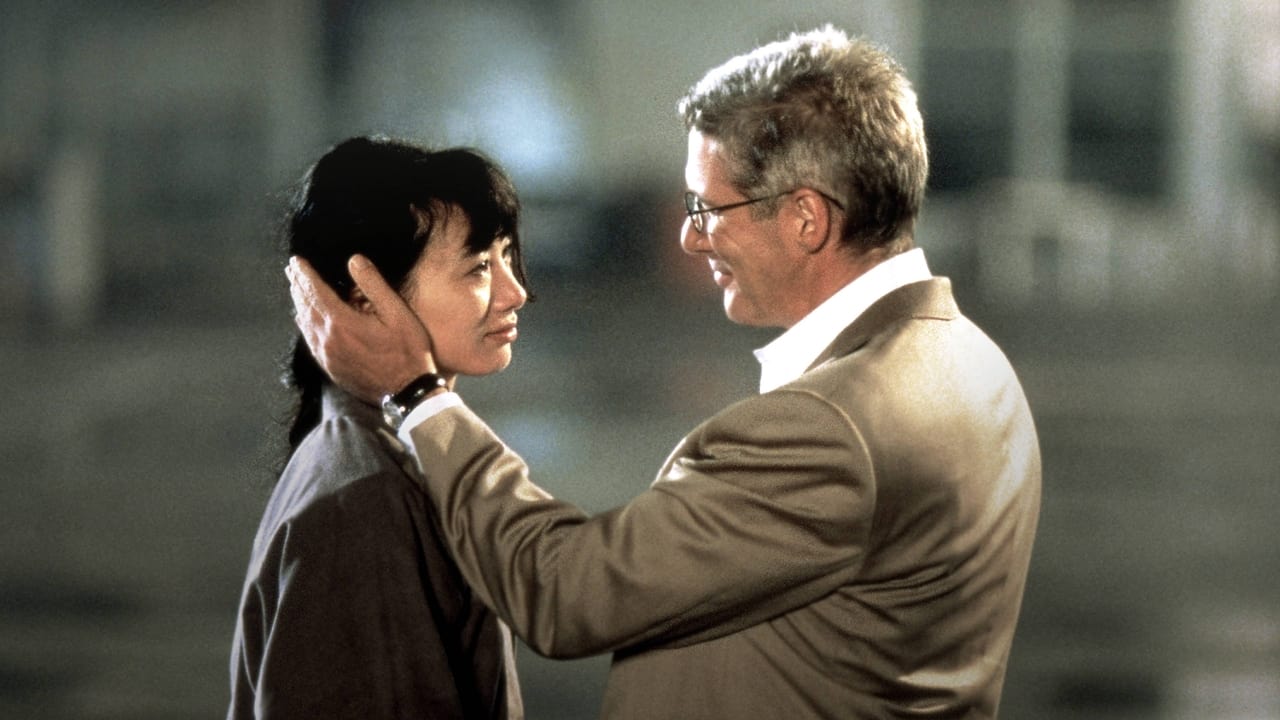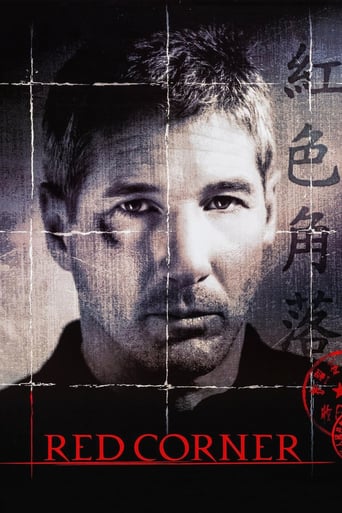

I came across this movie on Hulu last night by accident, after failing to stream two other movies, and am overall glad I decided to "settle" for it. It definitely could have been better in several ways, but the historical/legal aspect of it, set in transitional 90's Communist China is actually pretty outstanding and memorable. As one other user commented, the Chinese acting is perfectly convincing and even frightening in how realistic it is, but unfortunately Richard Gere's character is a little too...I don't know, idiotic? for my liking. Still, I wouldn't say he single-handedly ruined the movie.Reading the production notes and trivia on here is interesting to me because it shows how the producers really did capture the reality of what goes on in Red China. I visited all over China and Lhasa, Tibet, right after the olympics and can vouch that the same legal situation still exists there today. In Beijing, we drove by a large, concrete and windowless court-building with the CCP emblem (seen many times in the film, and omnipresent in China in general) and when asked what the building was, my tour guide just responded plainly, "That's where you go to die." For a foreigner, yeah, it might take a murder or espionage charge to keep you imprisoned indefinitely over there, but for Chinese citizens, many crimes are still punishable by execution without a fair trial, just as the film accurately portrays.So, if you're into Chinese history or culture, then this is definitely worth watching, even more than once. If not, then don't watch it.
... View MoreI wish Gilbert and Sullivan were alive to adapt "Red Corner" into one of their operettas. Preposterous story lines, unintentionally amusing dialogue and actions that G.&S. of course, would intentionally make into comedy (unlike what the writer of Red Corner and the hack director achieved), though perhaps I should give it another star because of the dozen or so laughs I did have. You praising folks want an example of the unintentional comedy? The scene where Richard Gere suddenly transforms from media executive to action hero after a seasoned hit man impossibly bungles shooting Gere and Bai Ling in a stalled limo. The un-hit man flees the scene with Gere in full pursuit, Gere loses sight of him but continues chasing something through a maze of alleyways; the big laugh of this scene is when Gere, riding a bicycle (with handcuffs on yet) is being pursued by a motorcycle cop who is closing in on him rapidly but eludes capture when the cop, apparently riding a motorcycle for the first time, slides on something in the street and wipes out. The truly grandest comedic moment in the movie though was the big production number at the end when the court proceedings become a shambles of story rabbits being pulled out of Bugs Bunny's body. It made me think of adding Perry Mason to the stateroom scene in "A Night At The Opera". A laugh a minute.
... View MoreThis is a really, really outstanding movie, and I am surprised that I had never heard of it. I stumbled across it on cable, and having an interest in modern day China, watched it on my DVR. The movie works on many levels - as an action movie, as an excellent portrayal of the Chinese court system, and as the story of a relationship between two individuals disparate in race and culture. I count Richard Gere as a fine actor, and knowing his work on behalf of the oppressed Tibetans, I am not surprised that he would be eager to be part of a movie that exposes the injustices of the Chinese "justice" system. It also shows well the corruption of the Chinese bureaucracy, and the backroom dealings foreign businessmen must engage in to get a foothold in the country. The portrayals of the sufferings of Gere's character while incarcerated are chilling, and to my knowledge accurate The action sequences are well done. The inevitable parting at the end of the 2 central characters ranks right up there with Casablanca and Witness. My only quibble is with some of the proceedings in the climax of the People's Court trail, proceedings which are hard to imagine actually happening. However, they do serve to move the story along. I would call this flick a sleeper.
... View MoreThis film held my interest because of the great acting by Ling Bai,(Shen Yuelin),"Edmond",'05, who is a very educated Chinese lawyer and is placed in a very difficult situation in having to defend Richard Gere,(Jack Moore), "Unfaithful",'02, who is also another lawyer from the United States. Jack Moore gets himself in a very bad situation with a young Chinese woman, he some what falls in love with this gal on first sight and winds up in bed with her and all kinds of problems seem to happen. Jack wakes up and can't remember very much of anything that seemed to have occurred with this young gal and winds up being thrown into jail and having to live like a pig in horrible conditions. Richard Gere and Ling Bai are a great combination, however, the film is rather long and drawn out and intends to become a bit boring.
... View More